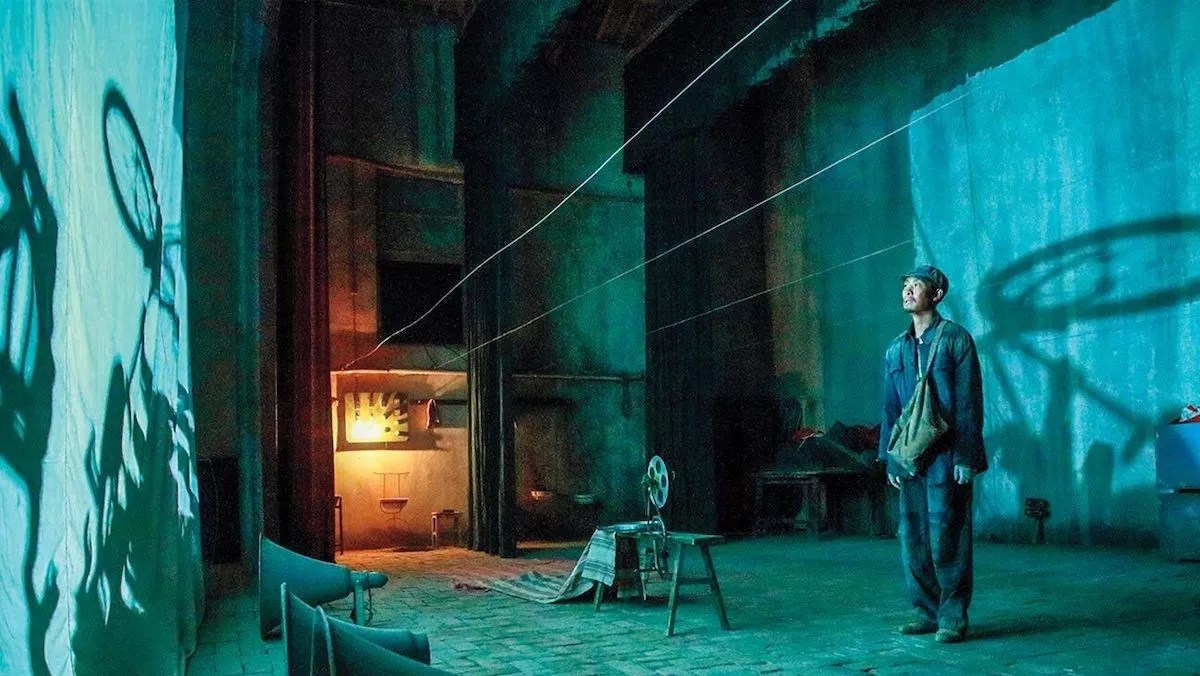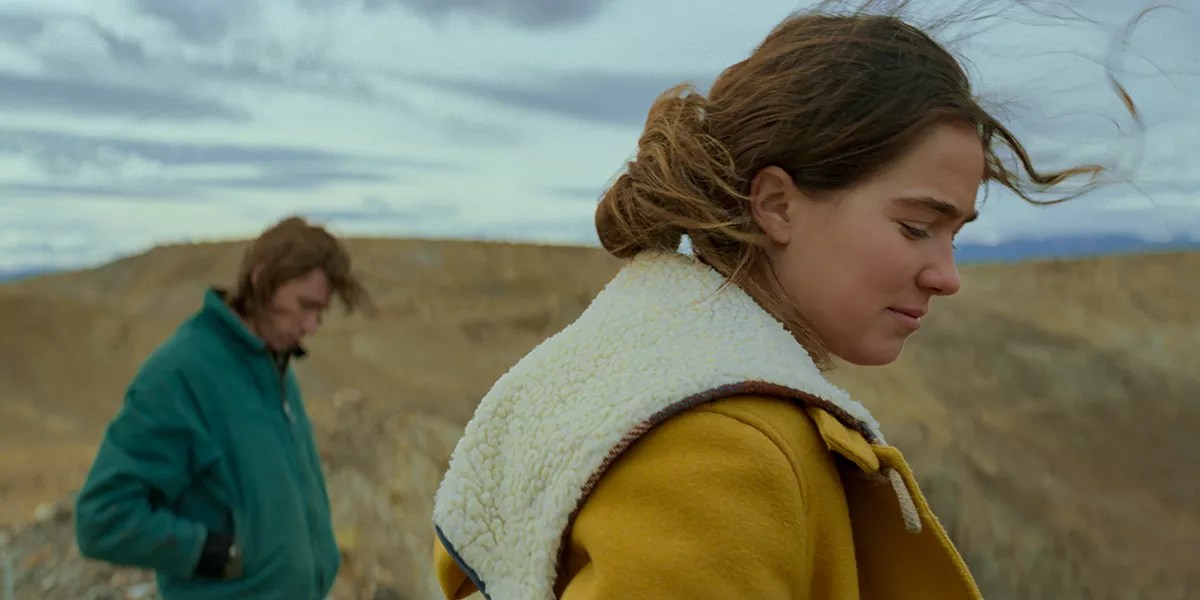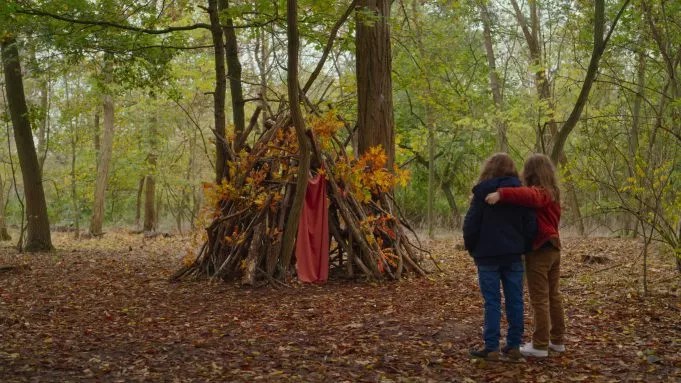
Photo courtesy of Neon

Audio By Carbonatix
Celebrating its 39th edition, the Miami Film Festival strives to bring the best and brightest of international cinema to South Florida. A hybrid of virtual and in-person screenings at the Silverspot Cinema and Tower Theater, this year’s festival is full of fresh features, stunning shorts, and phenomenal parties.
The festival launches on Friday, March 4, and continues through March 13. New Times has scoured the lineup to find some films you shouldn’t miss and maybe one you could take or leave.

The Cow Who Sang a Song Into the Future mixes an environmental message with magical realism.
Photo courtesy of Match Factory
The Cow Who Sang a Song Into the Future
Francisca Algeria, a new voice from the Chilean cinema landscape, delivers an intoxicating debut feature, The Cow Who Sang a Song Into the Future. Building upon her Sundance award-winning short And the Whole Sky Fit in the Dead Cow’s Eye, Algeria explores and expands her unique vision, which blends magical realism with environmentalism. It’s an amalgamation that is peculiar, spellbinding, and demands the theatrical experience offered by the festival.
In the film, a mysterious woman emerges from the depths of a river filled with decaying fish and sparks events that transform the dynamics of one family and the environment around them. Along with her two children, Alma and Tomas, Cecilia, a city-dwelling surgeon, returns to the dairy farm where she was raised, in order to care for her ailing father. Tomas, a transgender woman, is at odds with her mother over the latter’s refusal to accept her true self. Once home, Cecilia returns to the strained dynamics of her unhappy brother and demanding father.
The family strife is intriguingly connected with an ecological disaster seemingly caused by a pulp factory that’s polluting the river. Bees have disappeared, fish have died, and cattle on the dairy farm have been stricken. The politics of the film are subtle yet undeniable and very effective. Anchored by wonderfully restrained performances from the ensemble, The Cow Who Sang a Song Into the Future strikes a graceful balance between the personal and the political. Partly inspired by the cow as a figure of “the oppressed body of the feminine,” Algeria fashions a feminist fable with ease and authority. An extended meditation on past, present, and future, the film challenges the powers that be in favor of a new generation intent on repairing a damaged world.
In contrast to her penchant for unwieldy titles, Algeria is an economical filmmaker. Inspired by the avant-garde work of Maya Deren, she maintains a minimal and impactful approach. This film is dominated by silence (notwithstanding a fascinating update to the chorus of Greek tragedy), and Algeria’s camera conveys an agile fluidity akin to the work of Terrence Malick. The cinematography is lush and perfectly attuned to the surrounding nature that envelops the characters. While The Cow Who Sang a Song Into the Future may prove too abstract for some, it is a film that washes over the viewer and will haunt their thoughts well after the credits roll. 4:45 p.m. Sunday, March 6, at the Silverspot Cinema. Trae DeLellis

Javier Bardem stars in The Good Boss.
Photo courtesy of Cohen Media Group
The Good Boss
Fernando León de Aranoa’s The Good Boss earned an astounding 20 Goya nominations, Spain’s Oscar equivalent. It won six, including best screenplay, actor, director, and film, before opening at this year’s festival. What starts as a well-mounted and mildly funny comedy descends into a vicious, searing satire about a man on the verge of a nervous breakdown. Despite its slow start, The Good Boss concludes as a carefully calibrated provocative statement about the absurdity of the human desire for recognition and the cost of achievement in an increasingly competitive culture.
The Good Boss follows Julio Blanco (played to perfection by Javier Bardem), the owner of a family-run factory that manufactures industrial scales. Blanco is obsessed with balance and willing to do anything to achieve equilibrium. In a patronizing analogy, he views himself as a father and his employees as his children. The film explores a week in the life of Blanco as he awaits the arrival of a committee judging his work for a local business achievement award. Flanked by disgruntled and deranged employees and ambitious usurpers in the form of an ambitious shipment foreman and a seductive marketing intern, Blanco finds himself in a Shakespearean power struggle to maintain control and balance.
By far Bardem’s best performance of the year, his Blanco is a smarter, more sinister incarnation of Michael Scott. Blanco appears genteel and considerate on the surface, but beneath is an egomaniacal mixture of desperation and depravity. Bardem expertly combines his natural charisma with his penchant for playing evil men into a stunningly multilayered performance. This is an antihero for the ages. Blanco is obsessed with being seen as “the good boss” rather than actually being good.
León de Aranoa’s script and direction complement Bardem’s turn on all levels. From the pitch-perfect setting to the naming of the character, The Good Boss is a fully realized satire exploring societal imbalances of class, gender, and ethnicity with aplomb. It is a rewarding watch as the slow development of the first half falls away into a genuinely madcap, enthralling final act. The last image is chilling as it contemplates the human cost of a meaningless object. Make sure to see this brilliant dark tragicomedy before the inevitable and inevitably inferior American remake hits the screen. 7 p.m. Friday, March 4, at the Silverspot Cinema. Trae DeLellis

Montana Story feels like your average American indie fare.
Photo courtesy of Bleeker Street
Montana Story
After nearly a decade since their last movie, directing duo Scott McGehee and David Siegel return with Montana Story. While these directors may not be household names, they have carved out an interesting career specializing in family strife with films like 2001’s The Deep End starring Tilda Swinton and 2012’s What Maisie Knew starring Julianne Moore. Montana Story builds on those themes with diminishing returns and lacks the ingenuity of those previous efforts. The directors’ latest effort is a subtle and slow character study of two siblings returning home to confront past traumas but fails to leave a lasting impression.
The siblings in question, Cal and Erin, return to their father’s Montana ranch when he falls ill. Once prosperous, the ranch is now near collapse and financial ruin. Their return is not a happy one for other reasons, including a contentious relationship with their father and an unresolved conflict between them. Emotions erupt surrounding the future of a family horse, Mr. T. Interestingly, Montana Story shares a similar plot to The Cow Who Sang a Song Into the Future (there is even an environmental subplot), but Montana Story takes a more conventional form of a traditional American indie that could have been made ten to 25 years ago.
There is nothing wrong with Montana Story. It’s a gorgeous production abetted by the open sky of the Montana landscape, which is both serene and severe, and beautiful 35mm cinematography. The dialogue is authentic, and the performances are excellent. As the brother and sister, Owen Teague and Haley Lu Richardson (enjoy her before she gets locked into a Marvel contract) are well cast and give rich, naturalistic performances. Their climactic scene together hashing out their past is a marvel, but the rest is somewhat reserved. Gilbert Owuor and Kimberly Guerrero shine in supporting parts as caretakers that you wish their roles were better integrated into the story and more integral to the narrative.
Montana Story feels like straightforward American indie fare. This will come as refreshing to some and bland to others. Despite being well-mounted and -intentioned, Montana Story comes off a little anonymous and interchangeable with countless films before it and may struggle to leave a lasting impression once the screen goes dark. 7 p.m. Saturday, March 5, at the Silverspot Cinema. Trae DeLellis

One Second is a pleasure to watch unfold.
Photo courtesy of Neon
One Second
To read about Zhang Yimou’s One Second, one would believe that it is the kind of film censored beyond recognition before its release outside of China owing to politically motivated censorship. Watching the feature, which follows a man who escapes from a labor camp in order to see a newsreel with his daughter featured in it, it’s evident that there’s been some softening of the historical and cultural criticism that comes with the narrative it’s telling.
Revealing more of the narrative would ruin some of the pleasures to be found within the film, but suffice to say, it’s as touching as it is heartbreaking. That the film bounces between highlighting a genuine adoration of cinema and community while also damning those who historically suppressed anyone with a dissenting opinion within a certain political landscape is only one of the pleasures to be found within. It’s a film that manages to be as sentimental as it is subtly scathing, and there’s something to be said about a work of art that can manage this beyond tampering.
Though some scenes, like an egregious epilogue, clearly tacked on to soften the impact of its final moments, certainly betray the narrative, Zhang’s film is a pleasure to watch unfold. It’s not merely beautifully composed, with its expansive deserts being as riveting to witness as a packed screening room, but also engagingly told, with its actors bringing each character (and their conflicting emotions and choices) to life. 4 p.m. Saturday, March 5, at Tower Theater. Juan Antonio Barquin

Petite Maman clocks in at just 72 minutes.
Photo courtesy of Neon
Petite Maman
Céline Sciamma’s last feature, Portrait of a Lady on Fire, was the talk of the town – an intimate film that was nevertheless bursting with emotions that could barely be contained on screen. As if to contrast this, Petite Maman is a picture of restraint, of casual conversations whose emotional punches sneak up slowly but surely.
Clocking in at a brisk 72 minutes, Petite Maman curiously takes its sweet time to begin unfolding, but once it does, it’s easy to get drawn into its simple storytelling. The film tells the tale of Nelly, an 8-year-old girl who has just lost her maternal grandmother, spending time in her mother’s childhood home while her parents sort through it. Almost as if by magic, Nelly finds herself face to face with another young woman who looks eerily similar, quickly revealed to be her own mother Marion as a child.
Gabrielle and Joséphine Sanz, real-life twins, playing mother and daughter experiencing these brief moments of their lives together, are a wonder to watch. Not much is required of the two performers other than sincerity; their delivery is as impactful as watching them try to make pancakes. By focusing on the minutiae of their relationship and the delights found in exploring the world as a child, Sciamma avoids the pitfalls of many a film about precocious kids. Their conversations and interactions are charming rather than grating, resulting in a fairytale of sorts that comforts its audience and characters alike rather than confront them with the harsh realities of life and death that exist within its text. 2:30 p.m. Sunday, March 6, at Silverspot Cinema. Juan Barquin